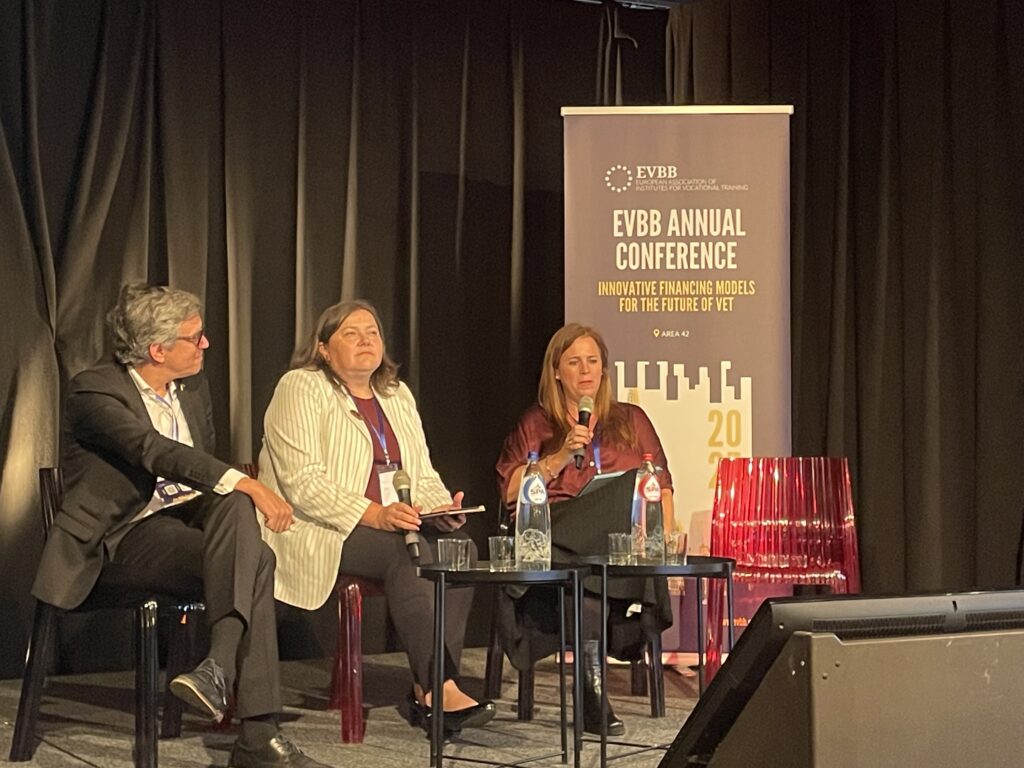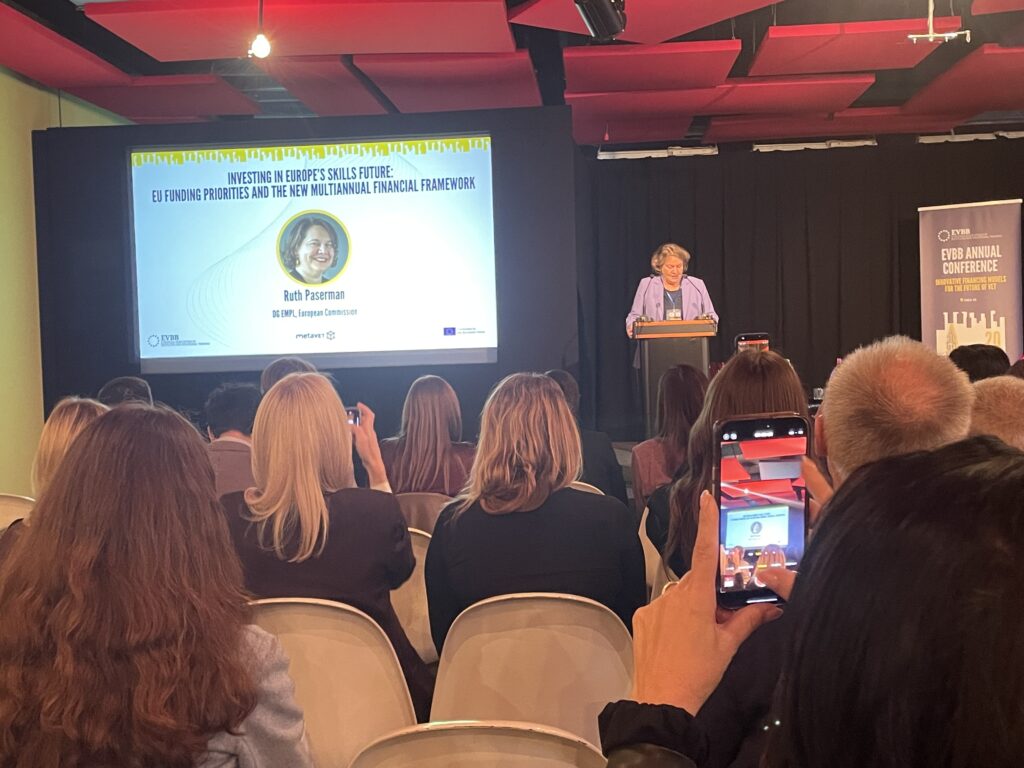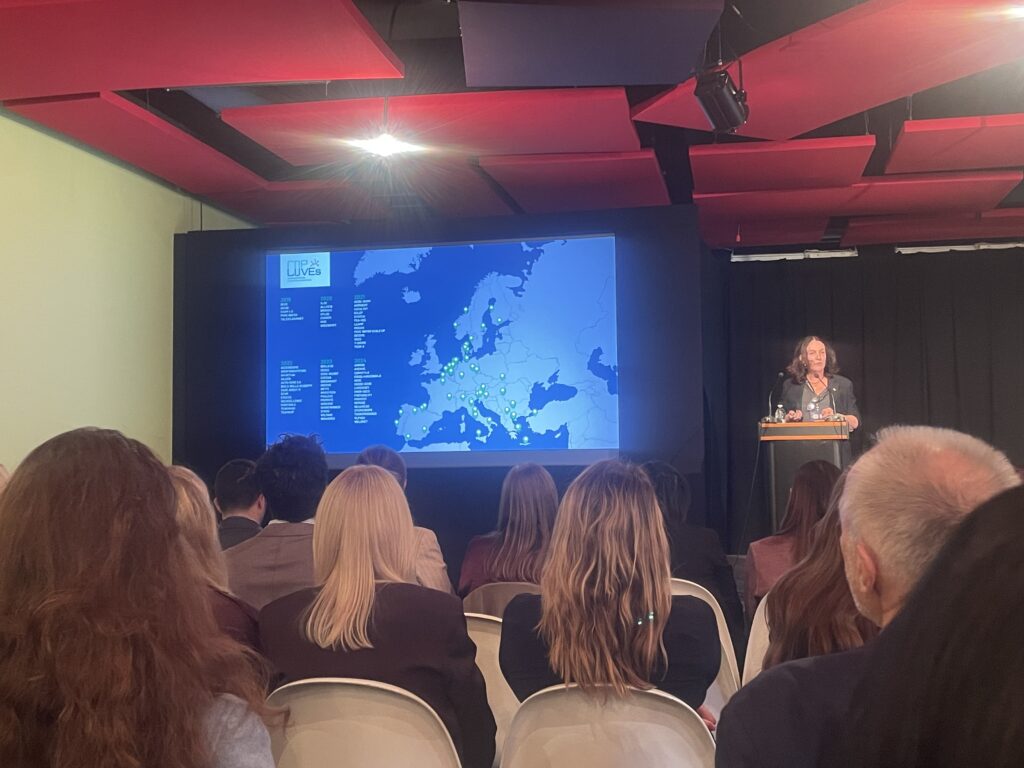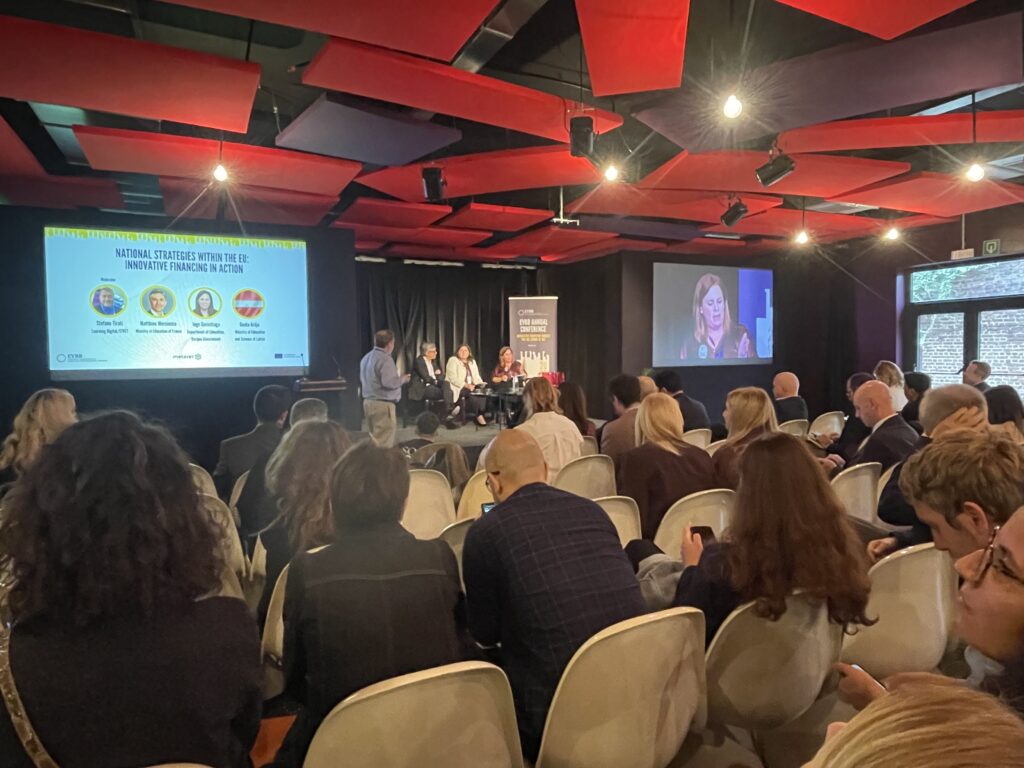EVBB Annual Conference 2025: Innovative Financing Models for the Future of VET
06/10/2025

The EVBB Annual Conference 2025 gathered European and international leaders from institutions, governments, training providers, businesses, and investors to address one of the most pressing issues of our time: how to finance skills for the future. Against the backdrop of the green and digital transitions, participants explored innovative models to build sustainable, inclusive, and future-proof vocational education and training (VET) systems.
This year’s programme featured high-level contributions from the European Parliament, the European Commission, the European Investment Bank/European Investment Fund (EIB/EIF), governments, and practitioners, all centred around the question: how can innovative financing unlock new opportunities for learners, providers, and communities?
Thiemo Fojkar, President of EVBB, underlined that “investment in skills is not a cost, but a smart choice for Europe.” He highlighted how innovative financing models can drive competitiveness, social cohesion, and resilience in a fast-changing labour market, stressing the need to ensure financing remains inclusive and accessible to learners and providers most in need.
Theodor Grassos, Secretary General of EVBB, emphasized that education is not just about projects but about supporting schools and systems. He urged stakeholders to look beyond Erasmus+ as the only mechanism, pointing to sponsorship schemes, World Bank solutions, and other financing opportunities that can guarantee long-term sustainability.
European Institutions: Scaling Up Investment in Skills
In a video message, Elena Meleti, Member of the European Parliament, highlighted VET as “a driver for innovation, not only a pathway to employment.” She called for creative financing to ensure inclusivity and relevance in the context of the green and digital transitions, underlining that no learner should be left behind.
Ruth Paserman, Director for Funds, Programming and Implementation at DG Employment, Social Affairs and Inclusion, European Commission, detailed ongoing preparations for the next Multiannual Financial Framework (2028–2034). She noted that six out of seven critical labour shortages in Europe require VET-related skills—such as nurses, roofers, and other essential professions—yet VET programmes still suffer from low visibility and enrolment. Paserman outlined priorities for the next budget cycle, including:
- Greater flexibility and simplification of funding streams.
- Stronger VET-business links beyond Erasmus+, notably through ESF+ (with €62 billion available for skills investment in the current period).
- Mobilising private funding and leveraging instruments such as InvestEU and EIB/EIF guarantees to scale investments in skills for the clean, digital, biotech, agricultural, and defence sectors.
Public–Private Partnerships: Building Sustainable Skills Ecosystems
The first panel discussion showcased diverse national and European approaches to public–private partnerships (PPPs) in VET.
- Miriam Korstanje (Katapult) presented the Dutch model, where over 550 PPPs link education with the labour market. The Regional Investment Fund VET has become a cornerstone in scaling innovation and co-funding partnerships.
- Martina Winkler (Enable) highlighted the importance of aligning investments with local employment opportunities.
- Bart Claes (EPOS) and other speakers stressed that PPPs should not compete but rather collaborate and scale up together, as seen in Centres of Vocational Excellence (CoVEs) across Europe.
EIB/EIF: Financing Human Capital
The EIB confirmed that skills shortages are one of the top obstacles to investment in Europe, affecting both SMEs and municipalities. In 2024 alone, the EIB Group provided €88.8 billion in financing, mobilising €305 billion in investments.
Its strategy for education and skills rests on three pillars:
- Lending: loans and co-financing for VET campuses, reskilling initiatives, and modernisation projects.
- Blending: combining EU grants with EIB loans and financial instruments.
- Advising: supporting project preparation, capacity building, and scaling of innovative initiatives.
Concrete examples include investments in modern VET campuses in Finland, coding bootcamps for women, and inclusive reskilling programmes.



VET Talks: Global Perspectives
Inspirational short talks broadened the global perspective on financing VET.
- Donatella Di Vozzo (ETF) reminded participants that skills are the world’s most renewable resource, calling for urgent action in mobilising innovative financing.
- Achim Schmillen (World Bank) shared lessons from voucher schemes in Colombia, illustrating how innovative instruments can improve efficiency and outcomes in skills financing.
National Strategies: Insights from Regions and Member States
One of the highlights of the conference was the panel on national strategies, where EARLALL Vice-President Inge Gorostiaga (Director of Digital Transformation and Advanced Learning, Basque Government) joined Matthieu Merciecca (French Ministry of Education, Campus des Métiers et des Qualifications) and Gunta Arāja (Deputy Director, Ministry of Education and Science of Latvia).
- France: Merciecca presented a network of 120 sectoral Campus des Métiers et des Qualifications, serving as national networks of excellence.
- Latvia: Arāja showcased Latvia’s effective use of EU structural funds, positioning the country as a leader in leveraging funding for VET modernisation.
- Basque Country: Gorostiaga outlined the Basque VET strategy, built around innovation, internationalisation, entrepreneurship, and strong networks. She highlighted the pivotal role of TKNIKA, the Basque VET Applied Research Centre, which empowers teachers to lead innovative projects that are later implemented in classrooms. Longstanding PPPs, such as the TKgune network linking VET centres and companies, exemplify this collaborative approach. Looking ahead, the Basque 2030 VET Plan focuses on digitalisation, the green transition, and internationalisation, with €65 million dedicated to innovation and teacher investment.
The EVBB Annual Conference 2025 made clear that financing VET is no longer just about programmes, but about systems transformation. From EU institutions to regional governments, from global investors to local training providers, a shared vision is emerging: investing in people and skills is investing in Europe’s future.
By combining public resources, private investment, and innovative instruments, stakeholders can ensure that VET remains inclusive, forward-looking, and resilient in the face of rapid change.

